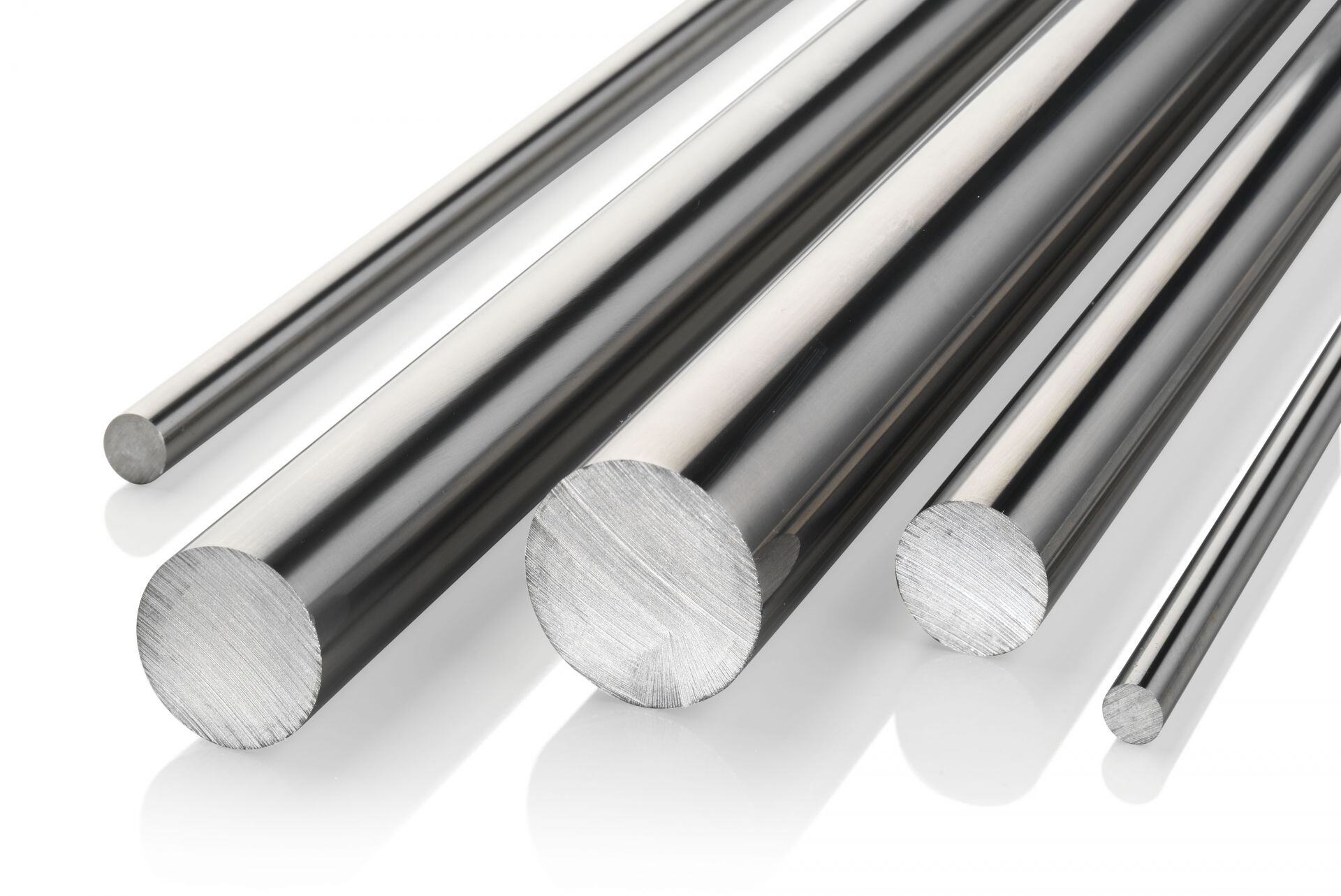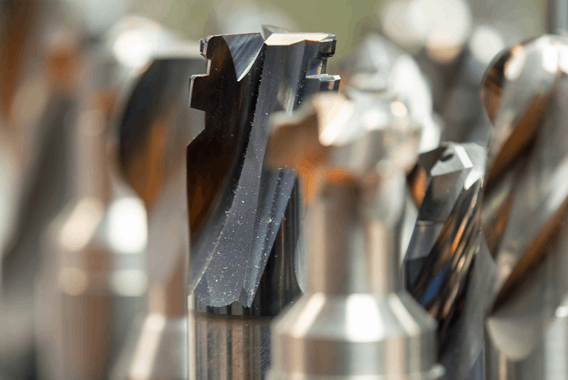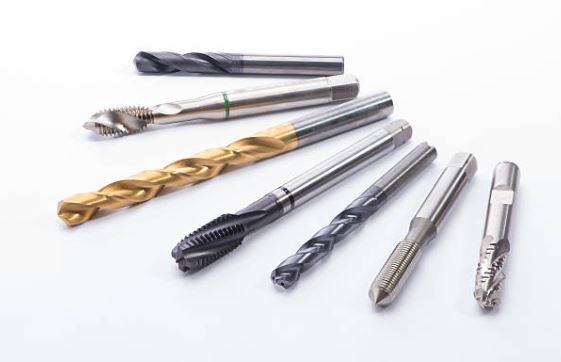When it comes to precision tooling, selecting the right material is essential for achieving the best possible outcomes. Carbide is highly valued for its outstanding hardness and wear resistance, making it a top choice for a wide range of machining applications. The efficiency of carbide tooling is significantly influenced by choosing the right grade for each specific application. In this article, we will delve into the various carbide grades and how they can be applied to different machining tasks.
Introduction to Precision Tooling and Carbide Grades
In modern manufacturing, precision is essential. Countless industries reap the benefits of incorporating carbide material into their machining operations, whether it's the aerospace sector requiring impeccable components or medical field's necessity for intricate devices. An essential yet often overlooked element of achieving precision lies in the meticulous process of selecting the right materials, particularly when it comes to the intricate decision-making involved in choosing carbide grades. These grades are meticulously crafted to meet specific demands, striking a balance between hardness, toughness, and resistance to wear and heat. Understanding these grades and their respective applications is crucial for optimising machining procedures and attaining peak performance.
Understanding Carbide Grades
 Carbide grades are differentiated by their composition, primarily tungsten carbide, cobalt as a binder, and sometimes additional compounds like titanium carbide or tantalum carbide. The size of the carbide particles and the ratio of these components play a crucial role in defining the unique characteristics of the material, tailored to meet the specific machining needs of each application.
Carbide grades are differentiated by their composition, primarily tungsten carbide, cobalt as a binder, and sometimes additional compounds like titanium carbide or tantalum carbide. The size of the carbide particles and the ratio of these components play a crucial role in defining the unique characteristics of the material, tailored to meet the specific machining needs of each application.
The main classifications of carbide grades and how they are utilised in various applications:
Cemented Carbide Grades for General Machining: Cemented carbide grades stand as the backbone of various general machining applications, prized for their versatility and balanced properties. These grades excel in tasks such as turning, milling, and drilling, where moderate cutting forces and temperatures are encountered.
- Versatility: Suitable for machining a wide array of materials, including steel, stainless steel, and non-ferrous alloys.
- Balanced Properties: Strike an equilibrium between toughness and hardness, enabling efficient material removal while maintaining tool integrity.
- Common Applications: Turning components, milling surfaces, and drilling holes in various workpiece materials.
Carbide Grades for Heavy-Duty and Abrasive Machining: In environments characterised by heavy-duty cutting and abrasive materials, carbide grades with superior wear resistance are indispensable. These grades are engineered to withstand extreme cutting forces and abrasive wear, ensuring prolonged tool life and consistent performance.
- High Wear Resistance: Formulated to resist wear from abrasive materials like cast iron, hardened steel, and superalloys, enabling extended tool life in demanding applications.
- Enhanced Toughness: Designed to withstand high-impact forces, heavy cutting loads and maintaining tool integrity under harsh machining conditions.
- Common Applications: Machining hardened steel components, high-speed milling of cast iron parts, and shaping abrasive materials.
Carbide Grades for High Temperature Machining: High temperature machining environments present unique challenges, necessitating carbide grades capable of withstanding prolonged exposure to heat without compromising performance. These grades are vital for applications involving materials like titanium and Inconel, where elevated temperatures are prevalent.
- Thermal Stability: Maintain hardness and resist thermal degradation at elevated temperatures, ensuring consistent cutting performance and dimensional accuracy.
- Oxidation Resistance: Formulated to resist oxidation and chemical wear in high temperature environments, preserving tool integrity and prolonging service life.
- Common Applications: Machining heat resistant alloys such as titanium and Inconel, as well as aluminium and cast iron components subjected to high temperatures.
Below are some recommended grades:
Submicron 7.5%Co, K10-K30, C-3 grades: Suitable for machining hard wood, aluminium alloy, cast iron, and non-ferrous metals.
1st Choice - Submicron 10%Co, K20-K40, C-2 grades: Tungsten carbide rods with a sub-fine grain size are ideal for processing at medium speeds, resulting in excellent overall performance. This grade is highly recommended for the production of drill bits and end mills, making them suitable for cutting a variety of materials such as ordinary alloy steel, aluminium alloy, heat-resistant alloy, and cast iron.
Submicron 9%Co, K20-K40, C-2 grades: Tungsten carbide rods with ultra-fine grain sizes are specifically designed for exceptional heat resistance, enabling the processing of a wide range of materials including alloy steel, stainless steel, heat-resistant alloys, and titanium alloys.
Ultrafine 12%Co, K10-K20, C-2 grades: Ultra-fine grain sizes offer exceptional wear resistance and toughness, making them perfect for precision finishing and processing of alloy steel, aluminium alloy, titanium alloy, and more. These rods are ideal for crafting end mills and reamers, ensuring high performance and durability in various machining applications.
Ultrafine 4.2%Co, K10, C-2 grades: Versatile for machining a variety of materials, including hardened steel, aluminium alloy, glass fiber-reinforced materials, high-wear-resistant stainless steel, composite graphite, PCBs, plastics, and more.
Summary
At Marlor Tooling, our team of professionals has extensive experience in selecting the right material to meet your specific needs. Choosing the appropriate material is essential for achieving optimal results. Carbide is renowned for its exceptional hardness and wear resistance, making it the preferred choice for a wide range of machining applications. The effectiveness of carbide tooling is greatly influenced by selecting the correct grade for each particular task.
Our expertise in understanding the distinct properties and benefits of each carbide grade allows our customers to optimise their tooling processes, enhance performance, and ensure the highest standards of precision and quality in their products. With a legacy spanning over three decades, we have continuously evolved to meet the changing needs of our customers. Our dedication to innovation, quality, and customer satisfaction distinguishes us as a trusted provider of custom carbide tooling solutions.
We pride ourselves on our attention to detail, which enables us to tailor custom carbide tooling solutions to the precise specifications of each application. Whether it's a complex machining task or a high-volume production run, our team has the skills and expertise to deliver reliable, cost-effective solutions that exceed expectations.
For more information about Marlor's custom carbide tooling solutions, visit our website at www.marlor.co.uk or contact us directly at 01733 404 800. Let us help you unlock the full potential of your manufacturing operations with precision-engineered tools tailored to your exact specifications.





